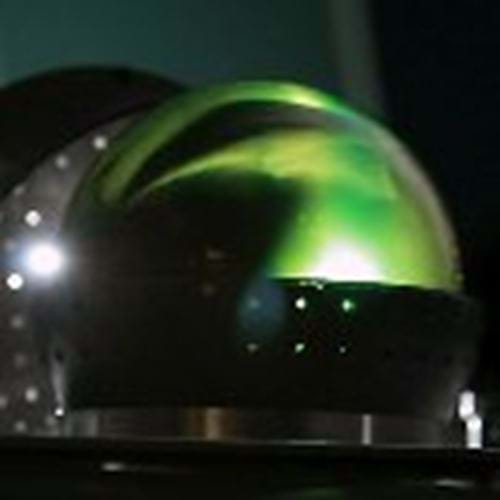British invention to help clear-up Fukushima
15th May 2013

An award-winning invention by British chemical engineer, Steven Stanley, will soon be used to help the clear-up operation at the Fukushima nuclear reactor in Japan.
The RadBall is around the size of an orange and has a radiation sensitive polymer material which becomes permanently opaque when exposed to radiation. The device helps to identify radioactive contamination in confined spaces and produces a 3-D image which can be used to target the clean-up operation at Fukushima.
The nuclear meltdown at Fukushima in 2011 spread a substantial amount of radioactive material within the reactor systems of the plant and out into the environment. The RadBall, which requires no power, will help prevent workers at Fukushima from having to scan the site with handheld detectors and reduce the risk of exposure to radiation. It also avoids other expensive equipment from being damaged or contaminated.
The RadBall was the idea of chemical engineer, Dr Steven Stanley, who started working on the idea in the mid 2000s. A graduate of the University of Manchester, Steven’s efforts were recognised by the Institution of Chemical Engineers (IChemE) in 2008, when he won two awards, including Young Engineer of the Year and the Innovation and Excellence in Health and Safety for the RadBall.
In recent years the RadBall has been developed by Steven’s employer, National Nuclear Laboratory (NNL). NNL have just announced a commercial arrangement with Hitachi-GE Nuclear Energy, Ltd. (HGNE) and TEPCO to use the technology at the Fukushima Daiichi site in Japan.
NNL's managing director, Paul Howarth said: 'The clean-up of the Fukushima Daiichi site is one of the major challenges facing the global nuclear industry at present, and I'm delighted that this NNL technology looks set to be considered as part of the solution to that challenge. We are looking forward to working with HGNE and TEPCO to better understand the details of the site and to help them to evaluate the capabilities of RadBall'.
IChemE chief executive, David Brown, said:”We identified the potential of Steven’s invention back in 2008 and it is excellent news that the RadBall will soon be contributing to the clear-up operation at Fukushima.
“Chemical engineers often work in the background, but have a huge influence on peoples’ everyday lives. In this case the talents of Steven and the commitment of NNL will make a big difference to the people living and working at Fukushima – saving time, money and improving safety.”